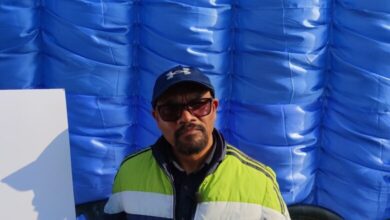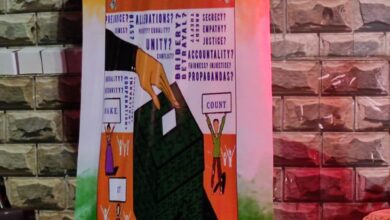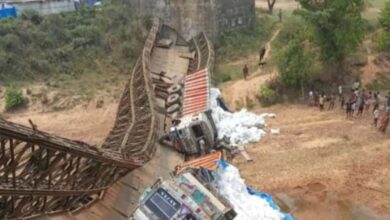Panel to work on restoration of polluted water bodies

Shillong, Oct 13: A comprehensive action plan for restoration of polluted water bodies in Meghalaya will be worked out by a ten-member expert committee headed by Principal Chief Conservator of Forest (PCCF) & HoFF BK Lyngwa (in picture).
The committee was formed on June 23 this year in accordance with the order of High Court of Meghalaya in a PIL of 2019 regarding cleanliness of Umiam lake. The mandate of the committee is to advise the state government on measures to be taken for restoration and protection of water bodies in the state.
Seven rivers including Umkhrah, Umshyrpi, Umtrew, Lukha and Myntdu which are being dealt with by a river rejuvenation committee have been excluded from the mandate of the panel. 53 wetlands are being taken care of by the Wetland Authority.
The committee held its second meeting on Thursday.
“We are in the process of formulating the action plan and of course the question of funding will come later on, it will be identified on a need basis and as when situation demands. The action plan will be site specific to every river and will cover the whole state except those water bodies in the wildlife protected areas, reserved forests and water bodies dealt with by the State Wetland Authority and River Rejuvenation Committee and the fish ponds”, Lyngwa said.
He said the action plan will be divided in four categories and the first will be of an advisory in nature, second will be of a regulatory nature, third will be of a participatory nature and fourth will be of a restoratory in nature.
Some districts have furnished the information and 9 water bodies have been identified in East Jaintia Hills.
East Garo Hills has 26, South Garo Hills 12, North Garo Hills 24, South West Garo Hills 12 and West Garo Hills 12
Studies will also be carried out in dry and rainy seasons for collection of baseline data related to pollution and others. The deadline is 6 months.
Fish ponds give distorted figures
Though other districts submitted information, there were too many fish ponds which resulted in distorted figures and the committee will not consider this information.
“Therefore, we have given 10 days’ time for these districts to submit the required information as per format ,” he said.
Expert member Nababrata Bhattacharjee said over 10,000 water bodies have been listed in the earlier report submitted by the districts before the committee was constituted. But the majority were shown as fish ponds.
The committee has decided not to consider the fish ponds as water-bodies and minus them, we feel the number will come to few hundreds. Once the exact total number comes, we will come up with prescriptions on how to go about it,” he said.
River rejuvenation in coal belts
When asked whether the committee would also take up water bodies located in the coal- belt districts of the state, Lyngwa said, “The government has already taken action through a pilot project which was successfully carried out in the Lukha river and now we are replicating that on a larger scale. However, if there are any rivers having acid mine drainage (AMD) issues which are not covered by the river rejuvenation committee, we will definitely take it up.”
Bhattacharjee, who is also chairman of the State Expert Appraisal Committee, said that a format has been sent to all the deputy commissioners giving parameters on how they should identify water-bodies, which are affected, polluted and contaminated.
He said the deputy commissioners have also been asked to open a helpline by using Whatsapp for involving stakeholders to ensure that the efforts of the committee do not confine within the four walls of a room.
“We want the people to be involved as water-bodies are assets of the state and if these are getting polluted it will be a catastrophe,” he said.
The objective of the committee is to ensure convergence among the stakeholders and eliminate overlapping due to the presence of too many authorities and expert bodies.
Apart from the deputy commissioners, the district committees will comprise members from departments like Urban Affairs, Soil and Water Conservation, Basin, Water Resources so that there is synergy to come up with a holistic action plan for each district.




